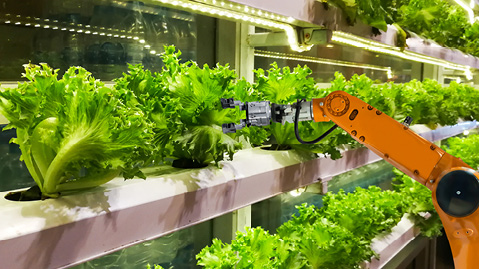Turnover in the online food retail sector is rising continuously: whilst it was still just under 1.6 billion Euros in 2019, it rose to 3.9 billion Euros in 2021. This has prompted the legislator to take action and it therefore comes as no great surprise that the legal requirements for online food retail are increasing – with very recent changes at the beginning of 2022.
Labelling of food in online retail
Food products must be correctly labelled in online retail and this labelling must be available before purchase. The information is intended to protect consumer health and provide a basis for informed choice and safe use of food. The Food Regulation provides for a wide range of mandatory information, including the name of the food and a list of ingredients and allergens contained. In addition, the Food Regulation prescribes some special requirements, such as the country of origin or provenance under certain conditions.
This information shall be clearly, legibly and, where appropriate, permanently displayed in a conspicuous place. It shall not be obscured in any way or made unclear by other information or images. In online transactions, the information must be available before the purchase contract is concluded, and in principle should appear on the same page as the actual food product. Online retailers in particular must take this into account when designing their pages.
Licences required under the new EU Organic Regulation
The new EU organic regulation, which has been in force since 2022, provides for a new labelling and certification system for organic food in online retail. From now on, online retailers must register for the sale of organic and organic food with the competent authorities, who will confirm (certify) this. If pre-packaged organic products are sold directly to final consumers in online transactions, this obligation does not apply if the food is not produced by the retailer. The food products labelled “organic” must also contain the code number of the control authority or control body responsible for controlling the operator. In the case of pre-packaged food, the logo of the European Union for organic production must in principle also be visible on the packaging, as well as the origin “EU agriculture” or “non-EU agriculture”.
New sampling in online retail
Sampling is a possibility for food monitoring to detect violations of food law. This means taking a certain amount of food in order to check compliance with food law by means of an analysis. Since August 2021, this has also been explicitly possible in online retail. Authorities can order products online without disclosing their official identity and use them as samples. In addition, a counter sample or duplicate sample must now also be deposited by the authorities in online retail. The sampling can cover all food products in online retail. The counter sample is either taken from part of the sample or from a second piece of the same type and from the same manufacturer. This is to ensure the right of the online retailer to be able to carry out a second expert opinion in the event of a dispute. However, since the authority can also access the counter-sample, it is in official custody. After the concealed internet purchase, the retailer must be informed about the test purchase. Online retailers must also reimburse the purchase price and the shipping costs for the sampling if this is requested by the authorities.
Inclusion of fulfilment service providers under the Packaging Act
With the amendment of the Packaging Act 2021, the addressees of the Packaging Act were also extended to operators of electronic marketplaces and fulfilment service providers. The latter include the entire order processing process, especially in the area of e-commerce, including order acceptance, consignment, shipping and returns. Online retailers - also for food - are considered manufacturers of packaging, recently regardless of the type of packaging and even if they commission a fulfilment service provider to handle their shipments. This means, among other things, that online retailers must register as manufacturers. Fulfilment service providers require proof of this. From 1 July 2022, these fulfilment service providers must now check whether their customers participate in a dual system. If this is not the case, no activities like warehousing, packaging, addressing and dispatch of goods, may be performed. This also takes into account the extended manufacturer responsibility, which also applies to packaging in particular. Online retailers meet this responsibility by participating in a dual system through packaging licensing. This applies to all retailers, regardless of the amount of packaging. In particular, online retailers concerned should conclude a licensing agreement with a dual system in good time and ensure entry on the packaging register.



